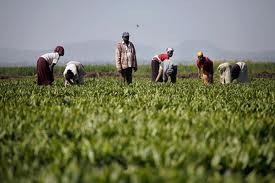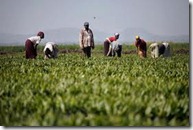DOHA: Qatar plans to set up some 1,400 agricultural farms covering a total area of 45,000 hectares as part of its strategy to achieve self-sufficiency in food production.
These farms will use the latest agricultural technology and as a support system plans are also afoot to establish educational institutions that would teach and conduct research on innovative agricultural technology.
The total arable land in the country measures around 65,000 hectares. This was announced yesterday at a news conference by the chairman of the Qatar National Food Security Program (QNFSP), Fahad bin Mohamed Al Attiyah.
For the above purpose, there would be close coordination between at least 17 government agencies, the chairman said.
Answering questions, he said existing farms in the country were able to produce only 10 percent of their capacity.
This is because of a severe lack of technically qualified staff that could work on the farms. Also, no studies have been conducted to provide support to the agricultural sector and hardly any financing is available to the sector.
The QNFSP will soon launch a food price index which will provide a daily update on prices of food available in various retail outlets all over Qatar.
The food price index is aimed at creating awareness among the general public about the price fluctuation mainly during Ramadan.
The index, which works similar to Qatar Exchange as it indicates the daily variation in prices, will be divided into different food categories such as dairy products and meat, explained chairman Al Attiyah, in a press conference held at their headquarters yesterday.
Commenting on the Emiri decree No 45 of 2011 on organising the QNFSP, which was issued recently by the Heir Apparent
H H Sheikh Tamim bin Hamad Al Thani, Al Attiyah said it shows the state’s commitment to enhance food security in Qatar through securing sustainable sources of food using ancient and modern technology to provide enough food for the population.
"This decree is an important message that demonstrates Qatar’s willingness to overcome one of its main challenges. The foresight of our leaders is a testimony to their commitment in making Qatar a safer place to live in, while preserving the environment and our natural resources through the implementation of green technology throughout the system," said Al Attiyah.
He said the decree emphasises the importance of coordination among government authorities, corporations and public institutions and companies the state owns or contributes to in order to work closely toward the goal of food security.
"The Emiri decision No. 45’s objective is to enable QNFSP to work closely with all government agencies here in Qatar, the entire government body structure and all the companies in order to coordinate and to work in a task force designed to put together a detailed master plan ready by 2013. This master plan will take 10 years to implement till 2023 when we should have been able to be food secure," he said.
The master plan will initiate the creation of four distinct economies namely renewable energy, water, agriculture, and food.
"These economies will support each other in order to make the entire system sustainable. The energy input to produce water will be based on renewable sources; we will not use any fossil fuel in order to generate that water that will go to the agricultural sector. The water that we will be producing from desalination plants will be distributed to all farms in the entire nation."
A highlight of the programme is the development of an agro-industrial park that will host many food processing facilities. The Agro-Industrial Park will take full advantage of Qatar’s expanding transport infrastructure such as the New Doha Port, the upcoming rail network that will link the GCC countries, and the bridge that is currently being built between Qatar and Bahrain. The upcoming infrastructure will permit Qatar to export its goods to neighbouring countries and internationally.
Al Attiyah said new agencies will be created in the process to complement the implementation of the programme by 2013, one of which is a food safety agency whose functions, laws and legislations is now being put in place.
"As most of you may know Qatar imports 90 percent of its food so the Arab world between 50 and 90 percent. The Arab world imports 40 percent of the world’s cereal and with the existing condition of climate change and water scarcity, not addressing this problem could pose a very serious problem for future development," said Attiyah, stressing on the significance of QNFSP.
http://www.zawya.com/story.cfm/sidZAWYA20110802033010/Qatar_Plans_Up_To_1400_Local_Farms


Deprecated: strpos(): Passing null to parameter #1 ($haystack) of type string is deprecated in /home/agriviek8Qv/agriviet.net/public_html/wp-includes/comment-template.php on line 2522